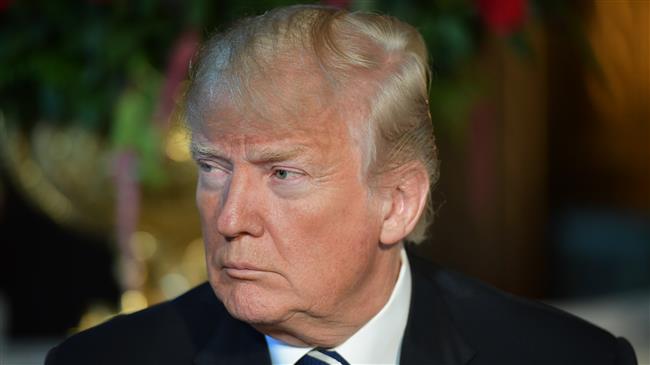
RNA - If you watch close, these recent developments do nothing but repeat themselves:
- Trump Recognizes Jerusalem Al-Quds as Israel's Capital, Reversing Longtime US Policy
- Jerusalem Embassy: Trump's Move Was Not About Peace
- Donald Trump Threatening Syria Directly Contradicts His Campaign Promises
- Trump Threatens Syria and Russia: Get Ready, US Missiles Will Be Coming Nice and New and Smart!
- Trump Exits Iran Nuclear Deal and Reinstates US Sanctions
- Donald Trump Cancels North Korea Nuclear Summit with Kim Jong-un
It’s hard to believe the above is coincidence, but it's even harder to believe in anything else – and it looks ever more eerily accurate as the Trump era progresses, day by day, tweet by tweet.
Only this week, for instance, the War Party in Washington evidently tried to depth-charge the coming North Korean talks in Singapore by comparing that country's nuclear situation to what they called the “Libyan Model.” Who - certainly not Kim Jong-un and Pyongyang - could forget what happened to de-nuked Libyan leader Muammar Gaddafi? In Hillary Clinton’s infamous words, laughingly said, about the US intervention in his country in 2011, “We came, we saw, he died.” And then Trump, evidently misunderstanding what “the Libyan Model” even was, followed up by directly threatening the North Korean leader with Gaddafi’s fate.
If this is not American decline amid such diplomatic chaos on a planet in its own kind of decline, we don’t know what else is. In these last months alone, the urge by the Trump White House to destroy globally has continued apace – week by week, tweet by tweet, the ongoing events have made it clearer than ever that Washington, which never cares about the rest of the international community, no longer has the so-called formidable global might.
This might be welcome news for peace activists and human rights groups who have grown tired of Washington’s endless wars and humanitarian disasters in places like Syria and Yemen. But there are other ways through which Trump and pro-Trump populists and allies alike can continue to cheer: Trump’s cancellation of one international accord after another, imposition of sanctions against Iran, North Korea, Russia, and Syria, and support for the idea of focusing on Israel and Saudi Arabia and their atrocities in occupied Palestine and Yemen.
Worse still, Trump seems determined to undo with a visceral vehemence: the Trans-Pacific trade pact (torn up), the Paris climate accord (withdrawn), the Iran nuclear deal (voided), close relations with NATO allies (damaged), diplomatic relations with Cuba (frozen), Middle Eastern military withdrawal (reversed), ending the Afghan war (cancelled), the diplomatic pivot to Asia (forgotten), and so on into what already seems like an eternity.
That said, the acceleration of the American decline by President Trump’s erratic foreign policy and one-man style of diplomacy has come with unanticipated and unpleasant costs as well. Consider the following:
- Israel Launches Most Extensive Strike in Syria in Decades
- Dozens of Palestinians Killed by Israeli Gunfire, Tear Gas in Gaza Protests
- Trump Wants Saudi Arabia to Buy More American-Made Weapons in Yemen War
- Putin Says US Exit from Iran Deal Could Trigger Instability
- US Threatens European Companies with Sanctions after Iran Deal Pullout
- Yemen War Is 2018's Worst Humanitarian Crisis, UN Says
- UN: More Palestinians Will Die Unless Gaza Becomes Livable
According to Fars News Agancy, this is where multilateralism, the gears, the workings, the ending of so much American chaos in the world comes in. Trump’s one-man style of diplomacy and foreign policy chaos might offer him a few “wins,” but they have also degraded Washington’s global stature with lasting consequences. After surveying 134 countries, Gallup’s pollsters recently reported that worldwide approval of US leadership has plunged from 48% in 2016 to a record low of 30% this year.
This is all common sense. America’s destructive presence on the global stage will be further reduced, potentially opening the way for the rise of a multilateral world. Of course, international institutions like the UN need to adapt to changes in the international scene. They have and they are. But as America continues to decline, calls are made for the international civil society to achieve its objectives of multilateralism as well. The message should be clear: Multilateralism has been a success that must be fought for and preserved against America’s destructive policy of unilateralism through collaborative, rapid, and global responses.
847/940